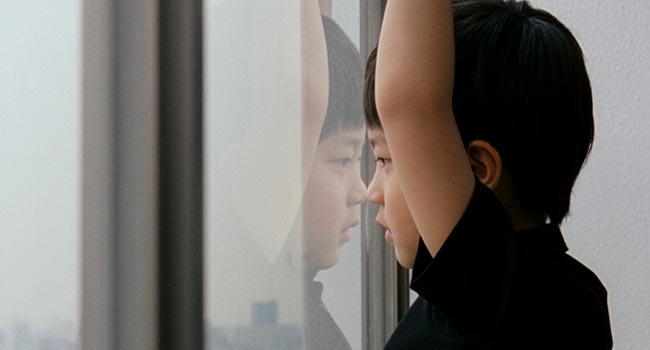
The film shows its cards nearly right away but it remains intriguing long after you think it has played its hand.

The film shows its cards nearly right away but it remains intriguing long after you think it has played its hand.
Hirokazu Koreeda’s Like Father, Like Son turned a lot of heads in theater at the Cannes Film Festival today, where it played in front of a teary eyed audience. On front display is the depiction of how strong parental bonds can be and how the right thing to do is often the most difficult thing to do. Although the film displays very traditional Japanese family values, the themes found within can be related to universally.
Ryota (Fukuyama Masaharu) is a hardworking and well-paid architect who places a lot of emphasis on discipline and manners towards raising his adorable six-year-old son named Keita. Along with his wife Midori (Ono Machiko), the family lives in an affluent apartment which spins at a very slow rate to give a full 360-degree aerial view that overlooks the city. Even though Ryota is so busy at work that he barely has free time to spend with his family, he still comes home at the end of the day to a loving wife and a son who is incredibly well-mannered and happy to see him. There is no question that the young son wants to be just like his father when he grows up. But very quickly into the film a major event occurs out of the blue that completely disrupts the family.
While registering Keita for school, the hospital blood test reveals that Keita is not actually at all related to his parents. It seems hard to believe that a hospital could give someone the wrong child, but it has actually happened several times in real life. As you can imagine, this is absolutely devastating news to both Ryota and Midori who have spent six years carefully raising a child turns out to not actually be their own.

Things begin to get even more interesting when Ryota and Midori meet with the two parents that the hospital switched the babies with. Both couples bring in the photos they have taken over the years of the other family’s son, they are overwhelmed when they finally get a glimpse of their actual son, now six years after birth. Soon they must determine whether or not switching sons at this point in their life is actually a wise decision. Not helping the situation is the fact that the other parents seem more interested in the money they intend to receive from the hospital’s mistake than the more important issue at hand.
On top of all that, Ryota gets increasingly frustrated with his actual son after they spend time together because the parents do not value discipline as much as he does. Unlike the “son” he raised, his natural son has no interest in learning the piano nor even knows how to properly hold chop sticks. Because of this, Ryota ultimately questions the parenting techniques of the other family which adds yet another variable to the equation.
Like Father, Like Son gracefully touches on social class issues, nature versus nurture, and the “right” way to raise a child. While the main focus of the film is the decision to choose bloodlines or the six important years of parenting and bonding with a child, Like Father, Like Son continuously develops its story. The film shows its cards almost right away but it remains intriguing long after you think it has played its hand. As a whole, the film is an excellent display of storytelling as it takes a rather basic premise and turns it into the emotionally complex film that it is.